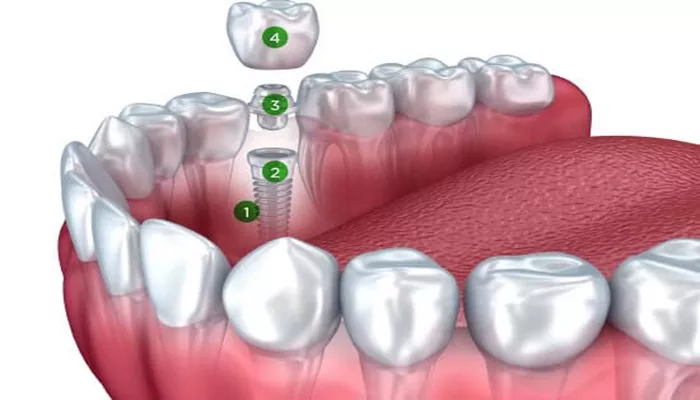Dental implants have become a popular solution for replacing missing teeth. They offer a permanent and natural-looking alternative to dentures and bridges. However, the cost of dental implants can be significant, and many patients seek insurance coverage to help manage these expenses. Delta Dental is one of the largest dental insurance providers in the United States, offering various plans that may cover dental implants. This article will explore the costs associated with Delta Dental dental implants, including coverage details, average expenses, and what patients can expect during their treatment journey.
Why Choose Delta Dental?
Delta Dental is a well-established provider of dental insurance, with a vast network of participating dentists. They offer several plans that may include coverage for dental implants. Choosing Delta Dental can provide several benefits:
Wide Network: Delta Dental has a large network of dental professionals, making it easier for patients to find a provider who accepts their insurance.
Cost Control: Delta Dental negotiates fees with participating dentists, which can help lower out-of-pocket costs for patients.
Comprehensive Coverage Options: Depending on the plan, Delta Dental may cover a percentage of the costs associated with dental implants, helping to make the procedure more affordable.
Understanding Delta Dental Coverage for Implants
The coverage for dental implants under Delta Dental varies based on the specific plan you have. Here are some key points to consider regarding coverage:
1. Coverage Percentage
On average, Delta Dental provides coverage of about 50% for dental implants. However, this percentage can vary based on the specific plan. For example:
Delta Dental PPO Plan: Typically covers 50% of the cost of dental implants.
Delta Dental Premier Plan: Generally covers around 40% of the cost.
Delta Dental PPO Plus Premier Plan: Offers 40% coverage in-network and 30% out-of-network.
SEE ALSO: How Long Is The Waiting Period for Dental Insurance
2. Components of Dental Implants
Dental implants consist of three main components, each with its own associated costs:
Implant Body (D6010): The titanium post inserted into the jawbone.
Abutment (D6057): The connector that attaches the implant body to the crown.
Crown (D6065): The visible part of the tooth that is placed on top of the abutment.
Delta Dental typically covers all three components at the same percentage, but patients should verify their specific plan details.
Average Costs of Dental Implants with Delta Dental
The average cost of a dental implant can vary widely based on several factors, including the location, the dentist’s expertise, and the specific components used. Here’s a breakdown of the average costs associated with dental implants when covered by Delta Dental:
1. Total Cost of Implants
The estimated average cost of a single dental implant, including all components, is around $3,000 to $4,500. This total includes the implant body, abutment, and crown.
2. Out-of-Pocket Expenses
If you have a Delta Dental plan that covers 50% of the costs, your out-of-pocket expenses would be approximately:
Implant Body (D6010): $1,400 (50% of $2,800)
Abutment (D6057): $600 (50% of $1,200)
Crown (D6065): $800 (50% of $1,600)
Adding these amounts together, the total out-of-pocket expense would be around $2,800 for a single dental implant.
Factors Influencing The Cost of Dental Implants
Several factors can influence the overall cost of dental implants, including:
1. Geographic Location
The cost of dental implants can vary significantly based on the region.
Urban areas may have higher costs due to increased demand and overhead expenses for dental practices.
2. Dentist’s Experience
The expertise and reputation of the dentist performing the implant surgery can also affect the cost. Highly experienced dentists may charge more for their services.
3. Additional Procedures
Some patients may require additional procedures before getting implants, such as bone grafting or sinus lifts. These procedures can add to the overall cost of treatment.
4. Implant Type
Different types of implants may have varying costs. For example, mini implants are generally less expensive than traditional implants.
Understanding Limitations And Exclusions
While Delta Dental provides coverage for dental implants, there are limitations and exclusions that patients should be aware of:
1. Missing Tooth Clause
Some Delta Dental plans include a “missing tooth clause,” which may deny coverage for implants if the tooth was missing before the insurance policy was purchased.
Patients should review their plan details to understand any restrictions.
2. Frequency Limitations
Delta Dental plans may have frequency limitations on implant coverage. For example, some plans may only cover one implant per tooth space per lifetime.
3. Annual Maximums
Most dental insurance plans, including Delta Dental, have annual maximums that limit the total amount of coverage available in a given year. This limit can affect how much of the implant costs are covered.
Getting A Pre-Treatment Estimate
Before undergoing dental implant surgery, it is advisable to obtain a pre-treatment estimate from your dentist. This estimate will provide a clear understanding of what your Delta Dental plan will cover and what your out-of-pocket expenses will be. Here’s how to go about it:
Consult Your Dentist: Schedule a consultation with your dentist to discuss your need for dental implants.
Request a Pre-Treatment Estimate: Ask your dentist to submit a pre-treatment estimate to Delta Dental. This estimate will outline the expected costs and the coverage provided by your plan.
Review the Estimate: Once you receive the estimate from Delta Dental, review it carefully to understand your financial responsibilities.
Conclusion
Dental implants can be a valuable investment in your oral health and quality of life. Understanding the costs associated with Delta Dental dental implants is crucial for making informed decisions about your treatment. With average coverage of 50% and various factors influencing costs, it is essential to review your specific Delta Dental plan and consult with your dentist to determine your out-of-pocket expenses. By obtaining a pre-treatment estimate and exploring financing options, you can navigate the financial aspects of dental implants more effectively.

